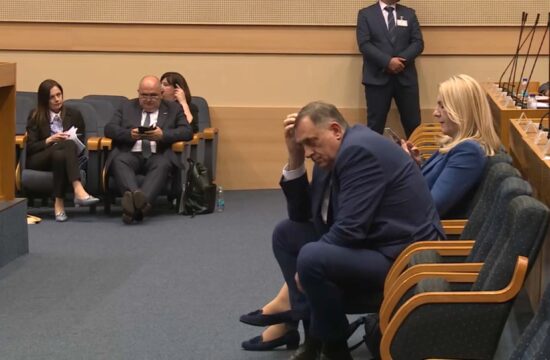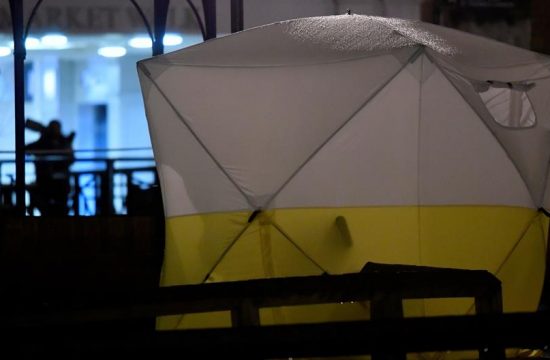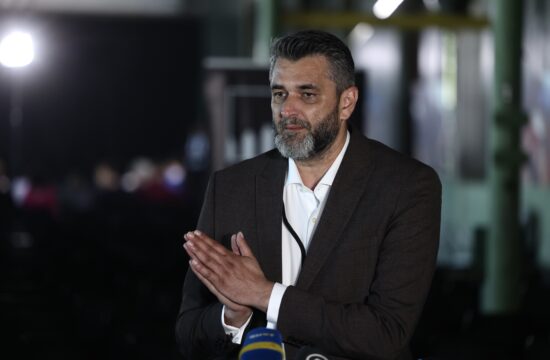
The situation on Montenegro following the adoption of the Law on Religious Freedom became a part of a campaign of disinformation led by Russia, Michael Carpenter, Senior Director of the Penn Biden Center for Diplomacy and Global Engagement and a non-resident Senior Fellow at the Atlantic Council, told the Voice of America (VOA).
In an interview late on Thursday, Carpenter said the Serbian Orthodox Church (SPC) had been used as a tool of ‘soft power,’ an instrument for the promotion of the Serbian and Russian interests.
He said that the Russian role was evident in “the fact that the media and social networks there manipulate the situation.”
“I even saw that the state TASS news agency said the US was behind the Law, and that Washington allegedly forced the Montenegrin authorities to pass that Law, what is mere nonsense.”
Carpenter added that a dialogue about the Law with the SPC was necessary for Montenegro because it caused further polarisation in the society between those who, as he put it, declared themselves as Serbs and the other parts of the Montenegrin community.
“It's a pity since Montenegro was one of a few examples of multi-ethnic democratic states in which the situation was mostly peaceful after separation with Serbia, but before that also,” Carpenter told VOA.
He added that what was going on now – “ethnic or religious tensions, you name it, should be carefully considered because it has the potential to shake up the society.”
Carpenter said that the Law which provoked tensions between Montenegro and Serbia, especially bitter rhetorics by some Serbian politicians, should be looked at in the light of the election year in both countries, but that one should take into account the broader geopolitical aspect of the dispute.
“The rights of all religious communities should be taken care of; the property rights ought to be respected, but there is also a hybrid competition going on behind the scene,” Carpenter said.
He added that the Russian influence was clear and that it showed that “everything has been politicised and becomes a part of the propaganda and the operation of misinforming conducted by the Russian side.”
The issue with the Russian propaganda and misinformation is, as he says, “a clever manipulation with cultural and ethnic divisions in a language receptive to some parts of the population. “Russian diplomats and politicians believe they can try to manipulate with the SPC in Montenegro or use it for their own goals.”
He adds that doesn't mean the SPC is an accomplice in all that, but the Russians see it as a tool.
“Hybrid competition is mirrored in the propaganda, spreading of influence through organisations that share the view, and impact of the Russian dirty money to achieve certain political goals, but also in many Russian cyberattacks on Montenegro, more than on any other regional country.”
“Moscow has a clear interest to undermine the current authorities in Montenegro,” Carpenter cautioned.
He added that Russia wanted to weaken NATO as well, but warned that “despite intense propaganda from abroad, the freedom of media in Montenegro must be protected at any cost.
“If Montenegro wants to ban Russia Today or Sputnik, that's one thing. But if local journalists became a target, it's another. That is unacceptable and must not be tolerated,” Carpenter told VOA.
He says he expects Russia's further attempts to spread its influence in Montenegro via so-called ‘soft power,’ because it believes that the US pays less attention to the region than before.




